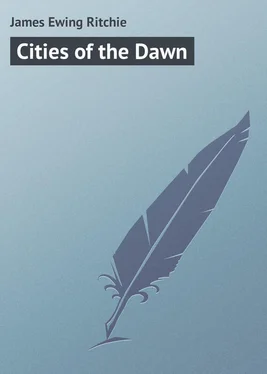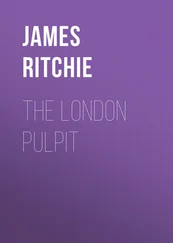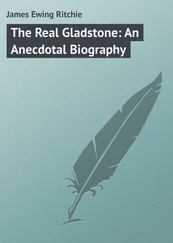James Ritchie - Cities of the Dawn
Здесь есть возможность читать онлайн «James Ritchie - Cities of the Dawn» — ознакомительный отрывок электронной книги совершенно бесплатно, а после прочтения отрывка купить полную версию. В некоторых случаях можно слушать аудио, скачать через торрент в формате fb2 и присутствует краткое содержание. Жанр: foreign_prose, foreign_language, на английском языке. Описание произведения, (предисловие) а так же отзывы посетителей доступны на портале библиотеки ЛибКат.
- Название:Cities of the Dawn
- Автор:
- Жанр:
- Год:неизвестен
- ISBN:нет данных
- Рейтинг книги:3 / 5. Голосов: 1
-
Избранное:Добавить в избранное
- Отзывы:
-
Ваша оценка:
- 60
- 1
- 2
- 3
- 4
- 5
Cities of the Dawn: краткое содержание, описание и аннотация
Предлагаем к чтению аннотацию, описание, краткое содержание или предисловие (зависит от того, что написал сам автор книги «Cities of the Dawn»). Если вы не нашли необходимую информацию о книге — напишите в комментариях, мы постараемся отыскать её.
Cities of the Dawn — читать онлайн ознакомительный отрывок
Ниже представлен текст книги, разбитый по страницам. Система сохранения места последней прочитанной страницы, позволяет с удобством читать онлайн бесплатно книгу «Cities of the Dawn», без необходимости каждый раз заново искать на чём Вы остановились. Поставьте закладку, и сможете в любой момент перейти на страницу, на которой закончили чтение.
Интервал:
Закладка:
Gradually we make our way through the Straits, sailing between Scylla and Charybdis, which for the modern traveller has no terrors. Our last view of Sicily gives us a fine glimpse of Etna, with the crater into which Empedocles threw himself, 400 b. c. Men are immortalized as much by their follies as by their virtues. As we onward press we get a glimpse of Candia, with the snowy peaks of Mount Ida, and Gavodo, or Goro, supposed to be the Clauda of St. Paul’s voyage to the westward. What associations rise as we see Cephalonia, Zante, Corfu! – all looking dry and bare in the scorching sun. We manage to make our way, though with some difficulty, through the Canal of Corinth, a work which I fear can never pay, as it is not large enough for the big steamers which now plough these waters. Everywhere islands, or rather rocks, diversify the scene, and every day we have more radiant sunsets and sunrises than you can realize in a Northern clime. To sail on this summer sea is indeed a treat. No wonder old Ulysses loved to wander among these isles, and to leave Penelope to do her knitting and to look after her maids at home. I regret that I cannot have a peep at Crete and Cyprus, the most famous islands in the Mediterranean, and we pass over the far-famed bay of Salamis almost unconsciously.
It is not my privilege to sail from one of the historic isles of the Mediterranean to another, nor do I know that in all cases it would be safe. In many cases besides Corsica and Sicily the traveller has to look to his ways. There are brigands to be met with still and as we travelled we heard of a British officer who had just been made captive as he wandered about in search of a day’s shooting. As you may well suppose, I gave the brigands a wide berth. I am quite content with being fleeced by guides and hotel-keepers. When I was in Australia, I was amused to learn that the last of the bushrangers had sailed to America to carry on a hotel. I fear that in many parts of the world the two callings have much in common. I believe the British pay no taxes – at any rate, they do not in Jerusalem – and this is one reason why we meet with such swarms of shady Greeks who claim to be British subjects. In this part of the world the Civis Romanus sum of old Palmerston seems to me in danger of being carried a deal too far. Not that I am a Little Englander; I am, in fact, very much the reverse.
Over these waters sailed the hardy mariners of ancient Greece in search of the Golden Fleece, and the brave Theseus, as he went to do battle with the monster Minos, who demanded a yearly tribute of Athenian maids. We all went on deck to have a look at Patmos, where the Apostle John wrote that wondrous dream, the Revelation, and viewed with interest the white convent on the island which still bears his name.
In the Sea of Marmora we pass the Princes Islands, four of which are inhabited. In one of them is the grave of Sir Edward Barton, the first resident British Ambassador in Turkey. He was sent by Queen Elizabeth to the Sultan Mahommed III., and died in 1507. Another of them, Plati, was purchased by Sir H. Bulwer while Ambassador to Constantinople. He built a castle on it, which is now falling into ruins, and later sold the island to the ex-Khedive of Egypt, to whose family it still belongs. Steaming south, we pass Alexandria Troas, which was twice visited by St. Paul. On the first occasion he came down from Mysia and went to Macedonia; on the second, on his return from Greece, he had an interview with a large body of fellow-workers. It was there he restored Eutychus, who had fallen from an upper window in his sleep.
Next we pass the ancient island of Lesbos, one of the most beautiful in the Ægean Sea. Islands are around us everywhere. There is no end to them. The most thickly populated of them is Chio; another is Cos, of which we see the chief town, the birthplace of Hippocrates, the great physician. Then we pass Rhodes, famous for its renowned knights, who did battle with the ever-advancing Turk, of whom Luther had such fear, and its grand Colossus overthrown and broken in pieces by an earthquake fifty-six years after its erection, b. c. 224; and then we leave the lovely Mediterranean at Jaffa, where, according to Greek mythology, Andromeda was chained to the rock and delivered by Perseus, and where the prophet Jonah embarked when he tried to escape the command of God to go and warn Nineveh of its impending fate. Of course I went to the house where St. Peter lived, the dwelling of Simon the tanner, a very dreary, tumbledown old place, which required a good deal of climbing, rather trying in that sultry clime. And here I leave that wonderful Mediterranean over which the navies of all the world in all ages have swept.
‘Thy shores are empires, changed in all save thee —
Assyria, Greece, Rome, Carthage, what are they?
Thy waters washed them power while they were free,
And many a tyrant since; their shores obey
The stranger, slave, or savage; their decay
Has dried up realms to deserts: not so thou;
Unchangeable save to thy wild waves’ play —
Time writes no wrinkles on thine azure brow —
Such as Creation’s dawn beheld, thou rollest now.’
CHAPTER VI
ABOUT ATHENS
For the first time in my life, I realize the fact that the Mediterranean is a lake – calm and blue as the eyes we love. What astonishes me is the absence of life in these waters. All is barren as that dreary sail across the Indian Ocean from Ceylon to West Australia. Really, if it were not for the photographers, who are always at work on board, we should be rather dull. It is really wonderful the number of amateur photographers who have come out in the Midnight Sun , and are daily having recourse to their art; and sometimes the consequences are ludicrous. For instance, we have a considerable number of respectable married people on board. Amongst them are a young couple whose experience of matrimonial felicity has been, I suspect, somewhat of the shortest. One morning they were ‘far from the madding crowd,’ indulging in little familiarities, such as leaning on one another’s shoulders – quite proper, as we must all admit, but rather suited for private than public life. Well, a photographer had his eye on them, and straightway made them his victims. There they were, large and fully recognisable. His praiseworthy attempt was greeted with a roar of laughter, of which the victims, far away (the artist was on the upper deck), had not the remotest idea. Let me add the moral: let me beg the newly-married ones to beware of the photographers. More numerous than the photographers are the ladies and gentlemen who spend their mornings in writing their diaries – if with a view to publication, a sad look-out.
In due time we reach Attica, and are landed at the Piræus, which is busy now as when Themistocles planned the harbour and Pericles planted its walls, five miles in length. The town has quite a modern look; nothing of its ancient glory remains. Its modern history dates from 1834. A modern lighthouse marks the site of the tomb of Themistocles. A railway, made in 1869, now connects the Piræus with Athens, and it grows apace. In old times there was rarely to be seen any boat in the harbour. In 1871 the population was only 11,000; in 1890 it had grown to 36,000, About 6,000 vessels of over two and a half millions of tonnage, one half of which is in Greek bottoms, enter the harbour annually. As a town, it consists chiefly of commercial buildings and unpretending private residences. It has, however, an arsenal, a military and naval school, several handsome churches for the orthodox members of the Greek Church, an interesting museum of antiquities, and a gymnasium. Trains run to Athens through the whole day until midnight. We land in a homely quarter of the town. ‘It is in the spring,’ writes Edmond About, ‘one sees Attica in her glory, when the air is so clear and transparent that it seems as if one had only to put forth one’s hand to touch the furthest mountains; when it carries sounds so faithfully that one can hear the bleating of flocks half a mile away, and the cries of great eagles, which are lost to sight in the immensity of the skies.’
Читать дальшеИнтервал:
Закладка:
Похожие книги на «Cities of the Dawn»
Представляем Вашему вниманию похожие книги на «Cities of the Dawn» списком для выбора. Мы отобрали схожую по названию и смыслу литературу в надежде предоставить читателям больше вариантов отыскать новые, интересные, ещё непрочитанные произведения.
Обсуждение, отзывы о книге «Cities of the Dawn» и просто собственные мнения читателей. Оставьте ваши комментарии, напишите, что Вы думаете о произведении, его смысле или главных героях. Укажите что конкретно понравилось, а что нет, и почему Вы так считаете.












